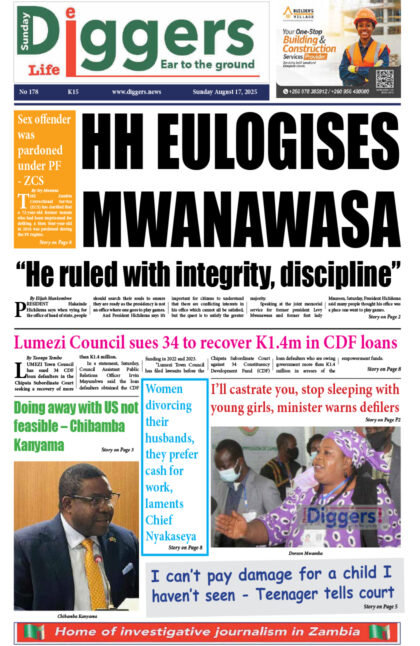The Consumer Unity and Trust Society (CUTS) International says mining companies must pay cost reflective tariffs if Zambia’s economy is to be revived because the country has no money to continue subsidizing energy.
In a statement, Zambia Centre Coordinator Chenai Mukumba said it was disappointing that government had decided to restore power to Mopani Copper Mines on subsidized prices when the mines were the largest consumers of energy.
“We are disappointed and we note with the deep concern the inconsistency in that the government has agreed to restore the electricity supply at subsidized prices to Mopani Mines when it is increasing electricity tariffs for the average Zambians. As much as ERB has carried out the process in a phased manner in order to attempt to mitigate the negative effects, four months is not long enough a time to allow consumers to adjust to the new tariffs. Further to this, we have failed to see accompanying measures such as the improvement of ZESCO’s efficiency levels and a coherent strategy to reduce wastage in some of its internal operational areas,” Mukumba stated.
Mukumba wondered why government seemed to be more willing to negotiate with the mines than with domestic consumers.
“In May 2017, phase one of the electricity tariff hike that was approved by the Energy Regulation Board (ERB) took effect with a 50% increase in electricity prices. Phase two will call for another increase and this time by an additional 25%. This means that the cost of electricity in Zambia would have gone up by 75% in the space of only four months. CUTS recognises that there is need for Zambia to move towards cost reflective tariffs as there are no resources for the country to continue subsidizing electricity, further to this we acknowledge that Zambia needs to become a more attractive investment destination in order to draw investment into the sector,” Mukumba stated.
“However, we also believe that some considerations need to be addressed and it is with deep concern that we have seen government at a stalemate with Mopani Mines in recent days. The mining industry consumes about 55% of the total electricity generated in Zambia whereas domestic consumers only use about 30%, yet the government seems to be more willing to negotiate with mining companies. It is imperative that mines pay cost reflective tariffs and we are urging the government to take a strong stance in these negotiations.”
She commended government for expediting the completion of the cost of service study saying the study would enable citizens to know the true cost of efficiently producing electricity that was currently unknown.
“Having said this, CUTS commends the government for expediting the completion of the cost of service study that is supposed to identify the true cost of electricity in Zambia. It is expected that this study will allow us to know the true cost of efficiently producing electricity that is currently unknown. Knowing the true cost of producing electricity efficiently in Zambia is the first step on the road towards cost-reflective tariffs. Consumers should not have to pay for inefficiencies in producing electricity,” stated Mukumba.
























